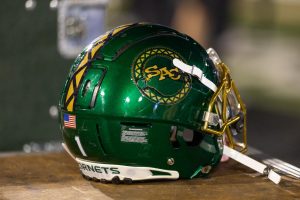Media Diversity workshop helps students deal with issues
November 1, 2000
Chicano News Media Association held a media diversity workshop on Saturday. Kevin Olivas, career development coordinator of CCNMA, hosted the panel made up of four reporters from the Sacramento and Modesto area. The workshop was organized in an effort to help students understand the diversity issues reporters deal with on a daily basis.
Edgar Sanchez, reporter for the Sacramento Bee, presented the audience with some anecdotes from his background and how it has helped him to deal with diversity as a reporter. “In the spring of 1988, Bee Managing Editor George Baker called me in: ?Every time we send a reporter to the farms, he sees nothing but fluff, public relations, make-believe, because the farmer gets ready for him. We need a reporter to go undercover to see the reality of farm labor.? Next week we hired a rent-a-wreck in Davis and hit the road. Picked grapes in Coachella, strawberries in Salinas, pears in Courtland. The result: an award-winning series, ?Toil and Trouble,?” Sanchez said. “If I were a white, English-speaking reporter, I couldn?t have done this project.”
Olivas spoke about the fault lines Robert C. Maynard, the first African American to own a major metropolitan newspaper, came up with: race, gender, economic status, and geography. “These fault lines help reporters deal with diversity issues,” Olivas said.
Karen Massie, reporter for KXTV, emphasized the importance of understanding others. “People need to have a better understanding, and peoples? biases need to go away,” Massie said. “Let?s be equitable and fair and let?s tell the truth.”
After the panel, aspiring reporters were sent to the computer lab where they were given time to work on a story focusing on the panel. Sanchez and Olivas then reviewed these stories. Joyce Cruz, a student at Sacramento State said, “It?s great that people in the media are holding workshops that inform students about diversity and prepare them to join the American workforce.”
Other reporters joined a panel discussion about journalism-related jobs. This panel focused on journalism jobs that students may not have considered. “Many students want to be anchors,” Olivas said, “but there are jobs in journalism that students may not have given a lot of thought to like business/technology reporting, copy editing, broadcast producing and online journalism.”
The panel discussion provided students an opportunity to learn and network with people already working in their chosen field.




























































































































